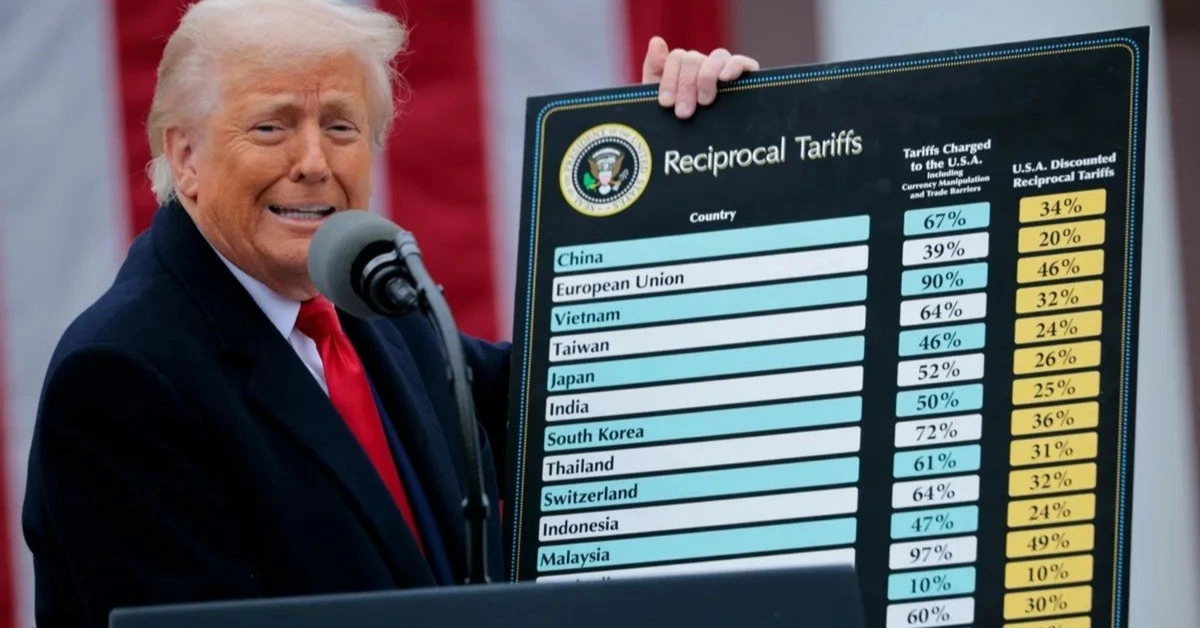
USA – President Donald Trump has announced a temporary rollback of import tariffs to 10% for most U.S. trading partners, offering a 90-day negotiation window while simultaneously imposing a steep 125% tariff on Chinese imports.
The decision, revealed in an April 9 post on Truth Social, marks a strategic pivot in the ongoing global trade realignment led by the Trump administration.
Trump cited China’s “lack of respect” for global markets as the primary reason for the immediate tariff hike targeting Chinese goods.
The escalation comes a day after China announced plans to raise tariffs on U.S. imports to 84%, intensifying tensions between the two economic powerhouses.
Earlier this month, the U.S. implemented a 10% baseline tariff on all imports effective April 5, with dozens of countries facing additional reciprocal rates of 11% to 50%. However, these steeper rates are now on pause for 90 days to allow negotiations.
The healthcare industry has voiced concern over the economic implications of the tariffs. Providence Health, based in Renton, Washington, estimated that the tariffs could raise annual costs by US $10 million to US $25 million.
A recent survey of 200 healthcare professionals revealed that 82% expect hospital and health system costs to rise by 15% within six months due to tariff-related expenses.
In a further blow to pharmaceutical companies, Trump announced that drug imports — initially exempt — will soon face “major tariffs.”
Speaking at a National Republican Congressional Committee dinner, he stated, “Most of their product is sold here… they’re going to be opening up their plants all over the place.”
Trump’s surprise tariff rollback announcement sparked a sharp rally in the stock market, with the S&P 500 surging 7%, marking its largest single-day gain in five years.
When questioned about the sudden change, Trump said, “They were getting a little bit yippy, a little bit afraid.” Treasury Secretary Scott Bessett insisted this was part of Trump’s planned strategy all along.
Privately, Trump acknowledged that his sweeping tariffs could push the U.S. economy into a recession but expressed concern about avoiding a full-blown depression, according to sources cited by the Wall Street Journal.
On the same day, Trump met for lunch with investing icon Charles Schwab, according to The Journal, further fueling speculation about economic strategy shifts.
XRP HEALTHCARE L.L.C | License Number: 2312867.01 | Dubai | © Copyright 2025 | All Rights Reserved